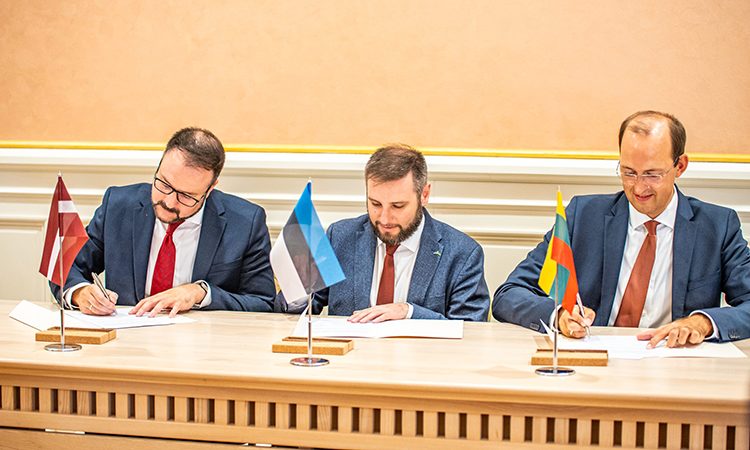Baltic transport ministers urge EU to increase investment in cross-border infrastructure
Posted: 11 September 2024 | Global Railway Review, Nic Losardo | No comments yet
Baltic Transport Ministers have called for increased EU investment in cross-border infrastructure projects, emphasising the importance of enhancing military mobility and completing key initiatives like Rail Baltica.


Credit: Rail Baltica
Rail Baltica has announced that transport ministers from Lithuania, Latvia and Estonia gathered in Palanga on 6 September 2024, issuing a call for increased European Union (EU) investment in key cross-border infrastructure projects. The officials stressed the need for ongoing and expanded funding to strengthen military mobility and enhance transportation links with the rest of Europe.
In a joint statement titled “CEF III – a Focused Approach to Bring the EU Closer Together,” Lithuanian Transport Minister Marius Skuodis, Latvian Transport Minister Kaspars Briškens and Estonian Minister of Infrastructure Vladimir Svet emphasised that the Connecting Europe Facility (CEF) should remain a crucial instrument in the EU’s upcoming multiannual financial framework (MFF), set to begin in 2028. The ministers highlighted the importance of ensuring sufficient financial resources to meet the growing demands across transport, energy and communication sectors.
A key focus of the ministers’ appeal was the completion of cross-border projects, including the Rail Baltica initiative, which is intended to fully integrate the Baltic states into the European transport network. The ministers had also underscored the need for increased EU funding to improve military mobility across the region, aligning with broader European security priorities.
Rail Baltica, a high-speed railway project connecting the Baltic nations with Poland and the rest of Europe, is set to be completed by 2030, with the crucial Lithuanian-Polish link expected to be finished by 2028. Earlier this year, the European Commission allocated an additional €1.2 billion for the development of the project across the Baltic region.
This joint initiative builds on earlier agreements between Central European and Baltic nations, calling for more substantial EU-level investment in military mobility, reflecting a growing emphasis on infrastructure as a pillar of regional security.







